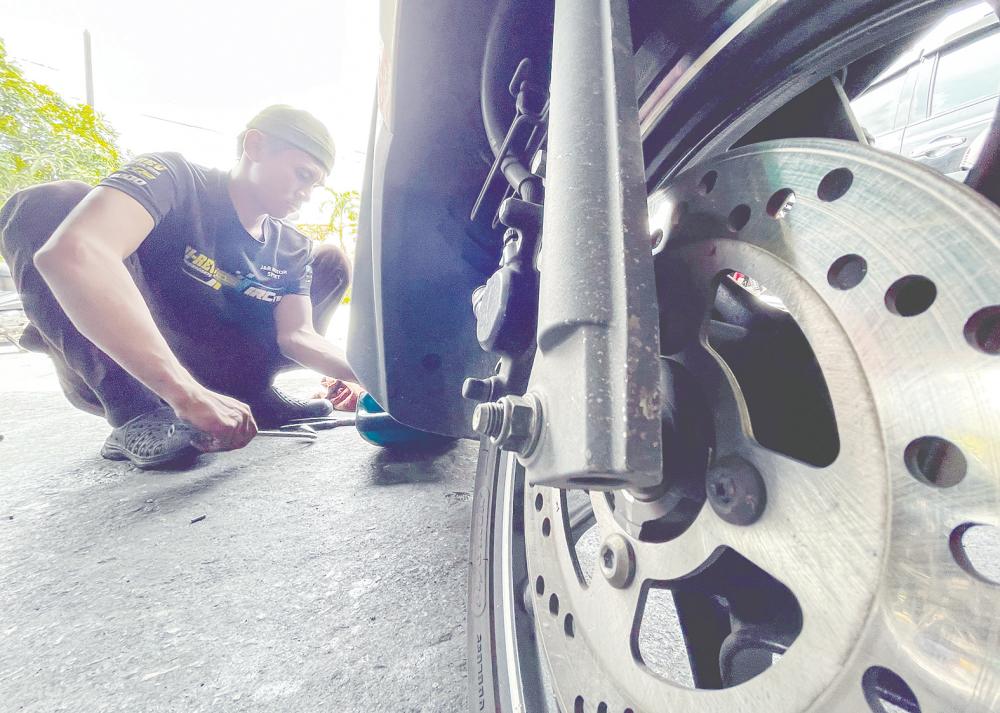PETALING JAYA: The Malaysian Institute of Road Safety Research (Miros) has lauded the government mandate for anti-lock braking systems (ABS) to be installed in new motorcycles with engine capacities of 150cc and above starting January next year.
Its director-general Assoc Prof Dr Siti Zaharah Ishak said the move would reduce the number of motorcycle fatalities and crashes.
“As motorcycle riders and their pillion passengers made up 65% of the 6,443 crash fatalities in 2023, the introduction of mandatory ABS for motorcycles marks an important step in advancing rider safety in the country.
“Motorcyclists face significant risks due to poor stability control and limited stopping power during emergency braking situations. Given their heightened exposure to injury, focusing on crash avoidance technologies is crucial to enhancing safety.”
She said ABS technology was introduced in 1988 to prevent wheels from locking during braking, increase motorcycle stability and prevent falls before a collision.
“Studies have shown that a motorcycle with ABS produces shorter braking distances and provides more consistent braking performance.”
She said ABS is a key technology prioritised under the Global Plan for the 2nd Decade of Action for Road Safety (2021-2030), which aims to reduce road traffic fatalities by 50%.
The Road Safety Plan 2022-2030 has identified the mandatory implementation of ABS on new motorcycles as a core strategy to improve safety, ensuring that motorcycles entering the market adhere to higher safety standards.
“The motorcycle industry has welcomed the move for mandatory ABS. A market survey shows that 70% of models with engine capacities between 150cc and 250cc, produced by three major manufacturers in Malaysia, are already equipped with ABS.”
While ABS was previously not mandatory for motorcycles sold in Malaysia, two-wheelers with engine capacities above 250cc are international models sold in every market and came standard with ABS.
Siti Zaharah said ABS has proven to be effective in reducing motorcycle crashes in various regions where similar regulations have been implemented.
In a 2023 report by the European Transport Safety Council, road fatalities involving motorcyclists in the European Union were shown to have decreased by an average of 2% annually over the past decade.
“In Sweden, studies have shown an 18% reduction in crash insurance claims for motorcycles equipped with ABS compared with non-ABS models. Studies in Germany, India and Indonesia revealed that ABS-equipped motorcycles helped prevent crashes by 26%, 33% and 26% respectively.”
She said the European Union, Japan, India, Brazil, Taiwan and Thailand have already mandated ABS for motorcycles, contributing to a global trend that is stabilising ABS component prices and making the technology more accessible.
“With Thailand being a major producer of ABS systems and implementing its own ABS regulations, ABS costs are expected to decrease and ABS-equipped motorcycles would remain affordable. So, the requirement would have minimal impact on motorcycle prices.”
She said as Malaysia is positioning itself as a regional leader in road safety by promoting the integration of advanced safety features, the requirement is expected to improve vehicle safety standards, reduce road crashes and fatalities, and foster a stronger safety culture.
“We will monitor national road crash statistics before and after implementing the mandate to evaluate its impact on motorcycle collision rates and overall road safety, ensuring that it contributes to broader road safety goals.
“Although ABS improves safety, riders should not rely solely on technology and must continue to practise responsible riding habits.”









